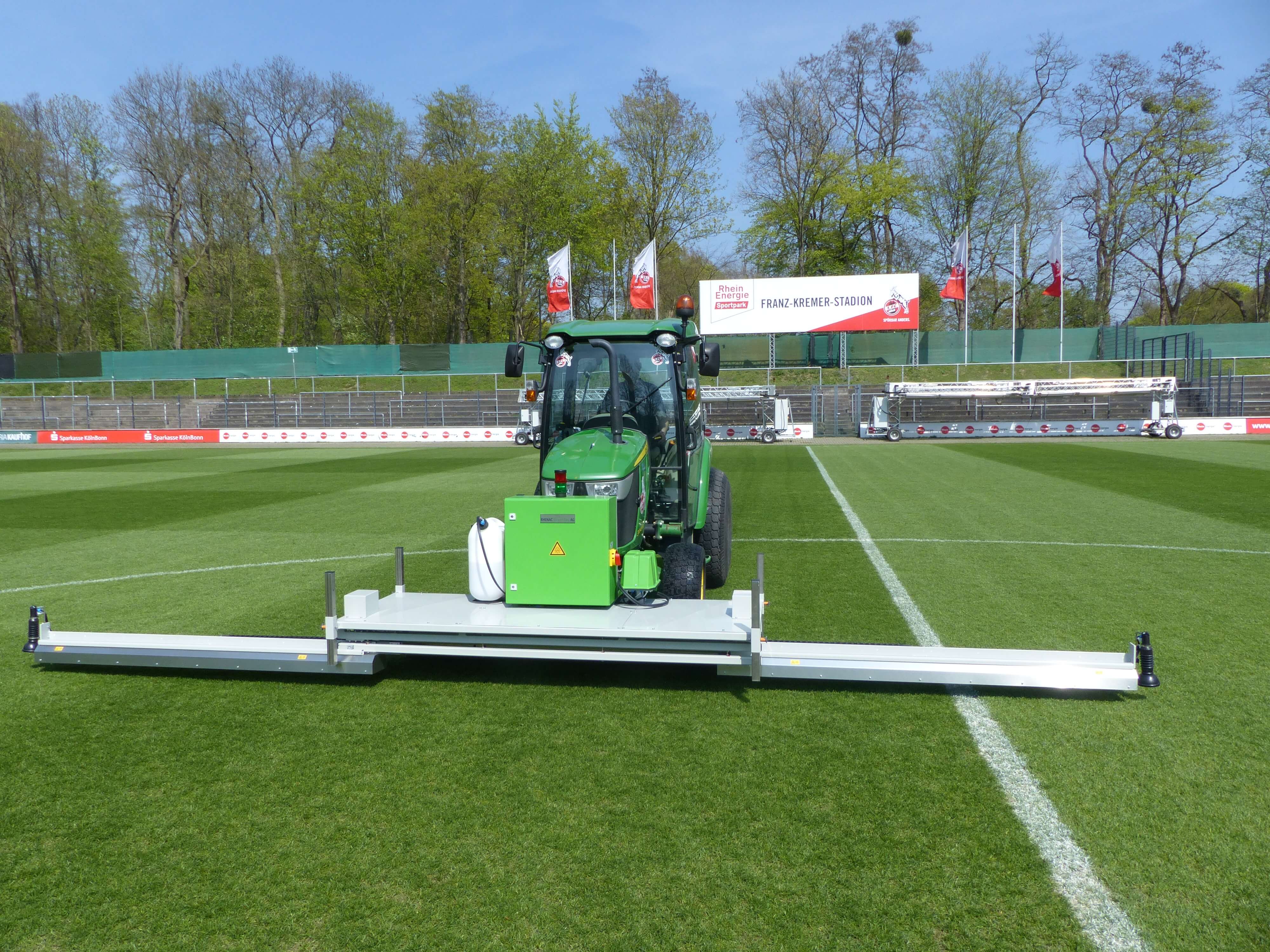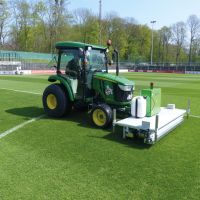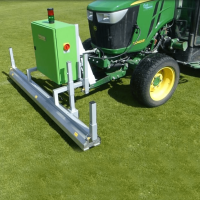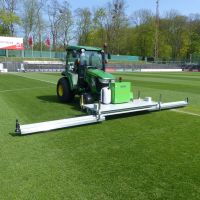
RSI UV-C Technology Shows That the Environment Comes First at 1. FC Köln
The groundsmen of German top-flight football club 1. FC Köln continuously balance their maintenance with the environment. The local area experiences a climate that is conducive to grass diseases. However, treating the grass and dealing with the diseases is a delicate exercise as most of club’ facilities are located in an area that is protected by environmental legislation. Thanks to the RSI UV-C the fields now remain in pristine condition.
Environmentally Protected
Sporting at the Franz Kremer sports complex dates back to 1876 when the sports facilities were added to the site that, until then, was part of the Cologne fortress ring. The site has been a popular training site for local football clubs ever since. In the 1920s the municipality declared the area part of the Outer Green Belt, an area where people should be able to exercise, participate in sports or simply be at leisure. In recent years, growing concerns about the environment saw some of the most progressive environmental legislation being adopted for this area first. It forced the club to reconsider its field maintenance practices.
Maintaining the grass fields had always been difficult but the implementation of strict environmental legislation made the task even more challenging for the groundsmen of 1. FC Köln. The climate Cologne normally experiences is one that makes sports fields very prone to infestations from algae, fungus or diseases. The area receives rainfall and mild temperatures throughout the year, with moderate UV exposure for most of the year.
When 1. FC Köln was introduced to the RSI UV-C technology it quickly embraced the philosophy. The RSI UV-C technology was developed by RSI business unit Rhenac GreenTec. It uses light to kill or destroy infestations like algae and fungus as well as diseases. Rhenac GreenTec first gained prominence when it was the first company to identify the link between light, color and the grass condition when it introduced its LED Grass Care unit in 2016.
Together with the University of Munich it had managed to identify the specific light spectrum that grass needs in a certain condition. Soon thereafter, Rhenac GreenTec introduced its UV-C technology that uses light from the UV range to kill infestations and diseases.
30 Minutes Per Field
The RSI UV-C unit that 1. FC Köln uses is six meters wide and fits on any tractor or tool carrier. As the unit can be folded up, the RSI UV-C can easily be transported to another location. The unit is preferably pushed over the field at a speed that will see the entire field treated within 30 to 45 minutes. LED modules in the unit emit an ultra-violet light of which it is known that it will affect the DNA of organisms like algae and fungus, killing it and causing diseases to retract. The unit is fitted with special optical warning systems to assist the groundsman identifying the areas that have been treated as well as driving at the correct speed. The club soon realized that it could achieve a 95% success rate when treating a field two or three times a week. One of the biggest advantages of the RSI UV-C is that using the tool doesn’t require any special skills nor does it require any investment other than the purchase of the unit.
The club has been advocating the technology ever since. A healthy surface is important if the team wants to practice and play the high-quality game that is often associated with the top-flight competition it plays in, the German Bundesliga. Due to the popularity of the club, it can ill-afford fields being unavailable due to maintenance as its complex is used to capacity. Lately the club has installed two artificial turf surfaces to increase the field capacity. Curious to see the effects of the UV-C on an artificial turf, the grounds crew used the RSI UV-C technology to also treat algae that had appeared on the artificial surface. Organic material from the field’s surroundings helped create the perfect conditions for the algae to settle. However, once the RSI UV-C light appeared, the algae soon stopped further infestation of the field and, over time, completely disappeared. Encouraged by these results, RSI has now decided to further investigate what it will take to ensure the technology will always remain effective, no matter the surface.
Connected to the IOT
Feedback received from 1. FC Köln has also played an important role in RSI deciding to connect the technology to the Internet of Things. By linking the RSI UV-C unit to sources like weather stations, local weather libraries, plant disease research units and their inhouse plant care research unit, RSI has established a powerful tool. In the near future, the RSI UV-C will be able to predict when a part of the surface deserves treatment and will adjust its program accordingly. As the lights used are very flexible and can adjust the light color and intensity immediately, the soon-to-be revealed RSI UV-C unit 2.0 will be able to treat surfaces with pinpoint accuracy.
Exactly when the Internet of Things will be added to the mix has not been decided yet, but it will only be a matter of time before this becomes reality.
The German football club 1. FC Köln might not often dominate the top of the league table. However, in terms of its approach to sustainability it has been leading the pack for many years already, all because they quickly identified and embraced RSI UV-C technology.






